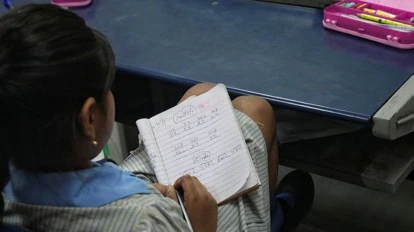
The Delhi Directorate of Education (DoE) is extending its Mission Mathematics and Special Mathematics Enrichment (SME) coaching programme to Classes 6 and 7 for the 2025–26 academic year, aiming to reinforce foundational maths skills early on. Originating in 2022 for Classes 8 through 10, the initiative has already shown notable improvement in students’ performance in both the Common Annual School Examinations and June’s Class 10 CBSE board exams. Buoyed by these results, the DoE has decided to widen the initiative’s scope.
Targeted Enrolment Based on Performance
Under the expanded plan, students from Classes 6 to 10 will now be considered eligible for SME classes based on their performance in the previous year. Priority will be given to students who passed with grace marks, cleared compartment exams, or secured below 40% marks (or 50% in some grades) in mathematics. Classroom teachers can also nominate students who demonstrate difficulties, as identified through internal assessments.
Mode of Delivery and Curriculum Support
Beginning from July 7, schools will receive digital worksheets, activity sheets, and daily practice questions thrice weekly to reinforce key math concepts in an engaging, hands-on way. SME classes will operate in small groups of 20–25 students, scheduled either before or after school, and can be led by trained resource persons hired with School Management Committee funds if needed.
For Class 10 students, a detailed item-wise analysis will follow mid-term exams to identify learning gaps, enabling precise remedial action.
Robust Oversight and Digital Tracking
To ensure effective implementation, zonal committees, comprising Deputy Directors of Education, principals, and mathematics-trained teachers, will be formed in each zone to monitor progress. Detailed student attendance and progress records must be maintained by schools. The DoE is also developing a centralized digital platform to track attendance and academic growth in mathematics under the Mission.
Teacher Training and Upskilling
A key component of the programme is training teachers in activity-based and experiential learning, offered through SCERT-led workshops. These sessions aim to equip educators with innovative teaching strategies and the tools to foster conceptual understanding in math.
Incentivising Innovation in Teaching Methods
To stimulate creativity and improve pedagogy, the DoE plans to hold competitions at school, zonal, district, and state levels to encourage the development of Teaching and Learning Materials (TLMs) in mathematics. Past events, such as the “Maths is Fun” TLM exhibition, showcased innovative use of everyday items, from pebbles to shoeboxes, for teaching complex math topics.
A Holistic Initiative with Proven Success
Since its inception, Mission Mathematics has adopted a child-centric, joyful approach to learning, integrating daily math questions, activity-centric worksheets, and small-group interventions. Schools have reported visible improvements in student confidence and board exam scores after the initiative’s rollout from Classes 8 to 10.
Challenges Ahead
While Mission Mathematics has yielded early successes, maintaining momentum presents challenges. Sustaining teacher engagement and participation in training across nearly 800 government schools demands dedicated resources. Effective utilization of School Management Committee funds to hire resource persons also requires careful oversight.
Additionally, the centralized digital tracking module under development must seamlessly integrate with school processes and state-level monitoring systems, ensuring timely capture of performance data.
Looking Ahead: Bridging Gaps and Strengthening Foundations
By launching SME coaching earlier, targeting students who struggle most, and embedding innovation in both teaching and curriculum, the DoE’s enhanced Mission Mathematics aims to close foundational learning gaps head-on. Its multi-layered approach, combining technology, teacher training, teacher-driven enrolment, and data analytics, creates a powerful framework for sustainable improvement.
These early efforts show promise not only for Delhi but as a potential model for national education reform. Rooted in core principles of the National Education Policy 2020, emphasizing foundational literacy and numeracy, experiential learning, and evidence-based interventions, the initiative aligns well with India’s broader education vision.
As it begins rolling out to younger students, schools, teachers, and parents will play crucial roles in nurturing a supportive math-learning ecosystem. Continued commitment from all stakeholders will determine Mission Mathematics’ long-term success in shaping confident, concept-ready learners. With its expansion to Classes 6 and 7, Delhi’s Mission Mathematics is setting a strong example of early intervention, structured support, and teacher empowerment to bridge math learning deficits, offering hope for brighter, more confident students across the system.




































Leave a Reply